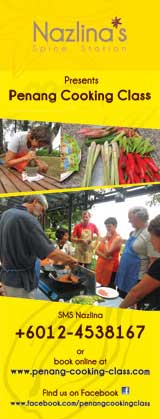
|
||
|
Follow @Nazlina
Alum for PicklingAlum for pickling is not a specific product. Rather, there are many other uses of alum. Some pickles recipe handed down from your grandmothers call for the usage of alum.
What is alum? Is it a safe chemical to use for pickling? Alum for pickling - safety guideline how to use this chemical is described in more detail in this page. Alum is a salt which results from a chemical reaction between an alkaline metal such as sodium, potassium or ammonia with a trivalent metal like aluminum, iron or chromium. Potassium-based alum has been used to produce crisp cucumber and watermelon- rind pickles as well as maraschino cherries, where the aluminum ions strengthen the fruits' cell-wall pectins. Alum powder, usually found amongst spices at grocery stores, is used in pickling recipes as a preservative, to maintain crispness, and as an ingredient in some play dough recipes. It is also commonly recommended as a home remedy or pain relief for canker sores. Alum for pickling is approved by the U.S. FDA as a food additive, but in large quantities (more than an ounce) it becomes toxic. As a result, efforts are being made to wean us of our alum dependency. If good quality produce and modern canning methods are employed, there is no need to use alum to bolster the crispness of the pickles and cherries. In any event, even if alum is used to soak the pickles, it should not be used in the final pickling liquid. Traditional ways to make crisp pickles include using alum powder, lime water solution and also adding grape leaves (which contains tanine). Avoid inhaling the alum powder-water mixture (or limewater solution) while mixing. Soak cucumbers in lime water for 12 hours to 24 hours. You must remove the excess lime absorbed by the cucumbers to make safe pickles. Remove cucumbers from lime solution, rinse and soak for one hour in fresh cold water. Repeat the rinsing and soaking steps in fresh water two more times. Handle carefully, as slices will be brittle. Drain well. Other uses of AlumAlums are useful for a range of industrial processes. They are soluble in water; have an astringent, acid, and sweetish taste; react acid to litmus; and crystallize in regular octahedra. When heated they liquefy; and if the heating is continued, the water of crystallization is driven off, the salt froths and swells, and at last an amorphous powder remains. Potassium alum is the common alum of commerce, although both soda alum and ammonium alum are manufactured.
Above are basic tips to use alum for pickling. Hope you learned some useful information about this basic pickles ingredient. Back to the page of Basic Pickles Ingredients Back to the homepage of Pickles and Spices

Custom Search
|

Custom Search
Nazlina's Cooking Class in PenangAttend my cooking class to learn making traditional food.
The morning class includes Penang Market Tour.
PLEASE NOTE: We now offer PM classes, for vegan and vegetarians. Read what others said about my cooking class Click here to add in your cooking class experience. See the fun photos of the cooking class here! |
|
|
|
||
|
|
||



New! Comments
Have your say about what you just read! Leave me a comment in the box below.